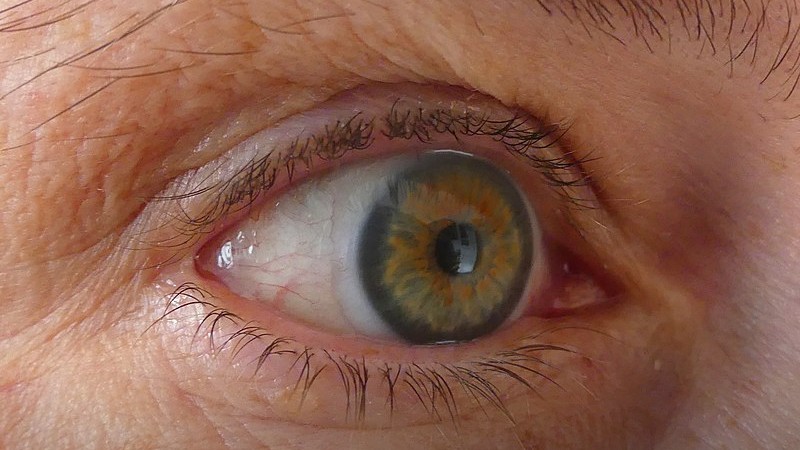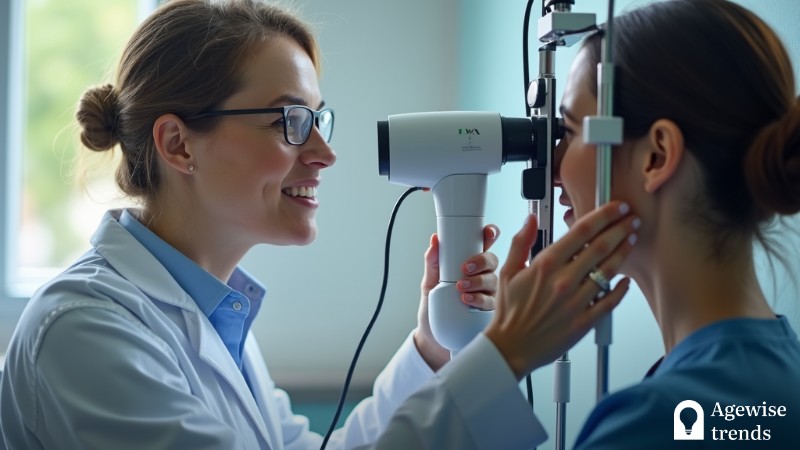Maintaining healthy vision goes beyond regular eye exams. It also involves everyday practices that support long-term eye health, particularly as the risk of cataracts, glaucoma, and macular degeneration increases with age.
Taking proactive steps can make a significant difference in preserving clarity and eye function over time.
Key Takeaways
This article discusses various ways to maintain eye health, particularly for older adults, including proper hygiene, reducing strain from digital screens, staying hydrated, eating a nutritious diet, exercising regularly, and protecting the eyes from UV damage.
- Regular handwashing can prevent eye infections and is especially important for contact lens wearers.
- Following the ’20-20-20′ rule helps reduce eye strain caused by prolonged screen time.
- Hydration, a diet rich in omega-3 fatty acids, and regular exercise contribute to reducing the risk of serious eye diseases.
Eye care for aging eyes
With age, eyes become more vulnerable to irritation, infections, and other concerns that impact vision and comfort. Attention to daily habits and preventive care can reduce strain and lower the likelihood of complications.
Proper hand hygiene to prevent eye infections
Regular handwashing is one of the most effective ways to prevent infections, including those affecting the eyes. Germs transfer easily from the hands to the face, increasing the risk of illness. The CDC reports that proper hand hygiene can reduce respiratory diseases by up to 21% and diarrheal diseases by as much as 40%.
For the 45 million Americans who wear contact lenses, maintaining clean hands is especially important. Nearly one in three experience complications, with some suffering permanent corneal damage due to improper handling.
Washing hands thoroughly before touching the eyes or lenses helps minimize infection risks.
Reducing eye strain in a digital world
Eye strain is a common problem linked with prolonged screen time, especially in today’s digital age. The average person spends over nine hours daily looking at screens, which can lead to eye discomfort and long-term vision issues like myopia.
This issue is particularly relevant for older adults who may already experience age-related vision changes.
To address this problem, adhere to the “20-20-20 rule,” which advises looking away from a digital display and focusing on something approximately 20 feet away every 20 minutes for 20 seconds.
By following this method, your eyes get an opportunity to recover, minimizing exhaustion.
The role of hydration, nutrition, and exercise
Drinking plenty of water is essential for overall health, but it is especially crucial for maintaining healthy eyes. Dehydration can cause dryness in the eyes, leading to irritation and discomfort. Older adults are more prone to dry eye syndrome, making hydration even more critical.
Aim to drink at least eight glasses (64 ounces) of water daily to keep your body hydrated and promote eye lubrication.
Additionally, increasing your intake of omega-3 fatty acids through diet or supplements can support eye health by reducing inflammation and aiding tear production. Omega-3s are found in fish such as salmon and tuna, as well as in flaxseeds and walnuts.
Regular exercise not only benefits overall health but also contributes positively to eye wellness. Studies suggest that physical activity may help reduce the risk of developing serious eye diseases like glaucoma, cataracts, and age-related macular degeneration.
Aim for at least 30 minutes of moderate exercise most days of the week to promote circulation and support eye function.
Protecting vision from UV damage
Protecting your eyes from harmful UV rays is essential at any age, but it becomes even more vital as you grow older. UV exposure can damage the eye’s surface and increase the risk of cataracts and macular degeneration over time.
Wearing sunglasses with UV protection or a wide-brimmed hat outside can help safeguard your vision. Choose wraparound sunglasses that block both UVA and UVB rays for maximum protection.
This simple habit helps protect eyesight and reduces strain caused by prolonged sun exposure.
Conclusion
Following these tips can significantly improve your eye function and reduce the risks associated with everyday habits or environmental factors.
Maintaining sound eye hygiene is just as important as having regular check-ups with an optometrist or ophthalmologist.
Routine eye examinations and healthy daily practices ensure that your vision stays sharp and your eyes remain in optimal condition as you age.















